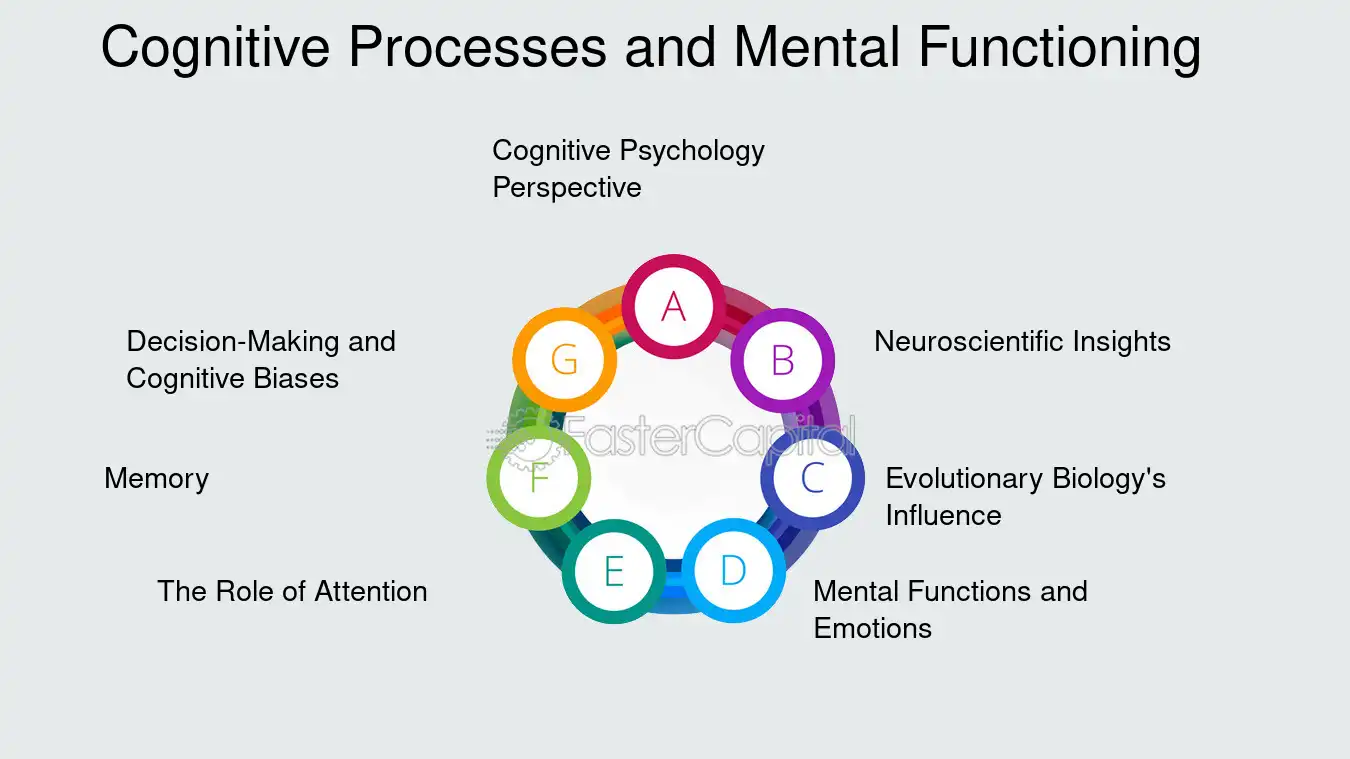
cognitive psychology focuses on studying
Cognitive psychology focuses on the study of mental processes such as perception, memory, problem-solving, reasoning, and language. It explores how people acquire, process, and store information. Unlike earlier schools of thought in psychology, such as behaviorism, which primarily focused on observable behaviors, cognitive psychology emphasizes the inner workings of the mind. This branch of psychology seeks to understand how we think, learn, and remember, aiming to explain the mental functions that underlie human behavior. In this article, we will dive deep into cognitive psychology, its key concepts, and the various ways it applies to real-world scenarios.
What is Cognitive Psychology?
Cognitive psychology is the scientific study of mental processes. It looks at how people understand, learn, remember, and use information. This area of psychology seeks to explain how we process sensory information, how we form perceptions, how we think and make decisions, and how we store and recall memories. Cognitive psychology uses experimental methods to study these processes, often relying on controlled experiments and cognitive models to better understand the brain’s role in these mental activities.
Cognitive psychology emerged in the 1950s as a reaction against behaviorism, which argued that psychology should only focus on observable behavior. Cognitive psychologists argue that understanding the mind’s internal processes is essential for understanding human behavior. It considers the mind as an information processor, similar to a computer, which processes input (information) and produces output (behavior).
Key Concepts in Cognitive Psychology
Perception and Sensory Processes
Perception refers to the process by which we interpret and organize sensory information. It allows us to make sense of the world around us by converting stimuli into meaningful experiences. Sensory processes involve the way our senses (sight, hearing, touch, taste, and smell) detect environmental stimuli and send this information to the brain for interpretation.
For example, when you see an object, your brain processes the visual information, and through perception, it allows you to identify what the object is. Cognitive psychologists are interested in how perception works and how different factors, such as attention, can influence our perception of the world.
Memory: Storing and Retrieving Information
Memory is one of the most critical areas of cognitive psychology. It involves the processes by which we store, retain, and retrieve information. Cognitive psychologists focus on understanding how memories are formed, how they are maintained, and why we sometimes forget.
There are different types of memory:
- Short-term memory: Temporary storage for a limited amount of information.
- Long-term memory: Information stored over a longer period.
- Working memory: A form of short-term memory that involves the active manipulation of information.
Researchers have also studied phenomena like forgetting, the tip-of-the-tongue effect, and false memories to explore how memory functions and how it can be influenced by various factors such as stress, distractions, or aging.
Problem-Solving and Decision Making
Problem-solving refers to the mental process of finding solutions to difficult or complex issues. It involves several steps, including identifying the problem, generating potential solutions, and evaluating the best possible option. Cognitive psychologists are interested in understanding how people approach problems, what strategies they use, and how cognitive biases may influence their decision-making.
Decision-making involves choosing the best course of action among various alternatives. This is an essential process in daily life, from simple choices (like deciding what to eat) to complex decisions (like buying a house or choosing a career path). Psychologists study the various cognitive biases and heuristics (mental shortcuts) that people use to make decisions, which can sometimes lead to suboptimal choices.
Language and Cognitive Development
Language is a fundamental aspect of human cognition. Cognitive psychology examines how language is acquired, processed, and used. It explores how individuals learn to understand and produce speech, how language influences thought, and how language development occurs across the lifespan.
Psychologists also explore cognitive development, which focuses on how children acquire cognitive skills such as memory, problem-solving, and reasoning. Piaget’s stages of cognitive development and Vygotsky’s theories on social interaction and language are prominent in understanding how cognitive abilities evolve as individuals grow.
The Role of Cognitive Psychology in Real-World Applications
Education and Learning
Cognitive psychology has numerous real-world applications, particularly in education and learning. By understanding how the brain processes and stores information, educators can develop more effective teaching strategies. Cognitive psychology provides insights into how to improve memory retention, enhance learning strategies, and cater to different cognitive styles.
For example, spaced repetition, a technique based on cognitive psychology principles, involves reviewing information at increasing intervals to help solidify it in long-term memory. Cognitive psychologists also investigate how cognitive load (the amount of information being processed) affects learning, helping educators design lessons that optimize attention and information retention.
Cognitive Therapy
Cognitive behavioral therapy (CBT) is an evidence-based therapeutic approach that draws heavily on principles of cognitive psychology. It focuses on identifying and challenging negative thought patterns and beliefs that influence emotions and behavior. CBT is used to treat a variety of mental health disorders, including anxiety, depression, and PTSD.
By understanding how cognitive biases and faulty thinking contribute to psychological issues, CBT helps individuals develop healthier ways of thinking, behaving, and coping. This therapy has been widely successful in treating both individuals and groups.
Artificial Intelligence and Cognitive Psychology
Cognitive psychology also intersects with fields like artificial intelligence (AI) and machine learning. The study of how the human brain processes information has inspired the development of algorithms and models for AI systems. For instance, cognitive models have been used to improve natural language processing in machines, enabling more sophisticated human-computer interactions.
Researchers use cognitive theories to develop better algorithms that mimic human decision-making, problem-solving, and learning. By understanding how the mind works, we can create more intuitive AI systems that can simulate human cognitive processes and behavior.
The Future of Cognitive Psychology
Cognitive psychology continues to evolve as new technologies, research methods, and interdisciplinary approaches emerge. Advances in brain imaging and neuropsychology allow researchers to explore the neural mechanisms underlying cognitive functions. This has led to the development of neurocognitive psychology, which links cognitive functions to brain structures and processes, deepening our understanding of the relationship between the mind and the brain.
In the future, cognitive psychology will continue to play a pivotal role in improving various aspects of human life. From optimizing educational practices to advancing mental health treatments and enhancing artificial intelligence, cognitive psychology will remain a vital field of study with far-reaching applications.
Conclusion
Cognitive psychology provides valuable insights into the mental processes that shape human behavior. By studying perception, memory, problem-solving, and decision-making, cognitive psychologists strive to understand the intricate workings of the human mind. Its practical applications in fields such as education, therapy, and technology highlight the importance of cognitive psychology in everyday life. As research continues to advance, the field will offer even more profound insights into how we think, learn, and interact with the world around us.





